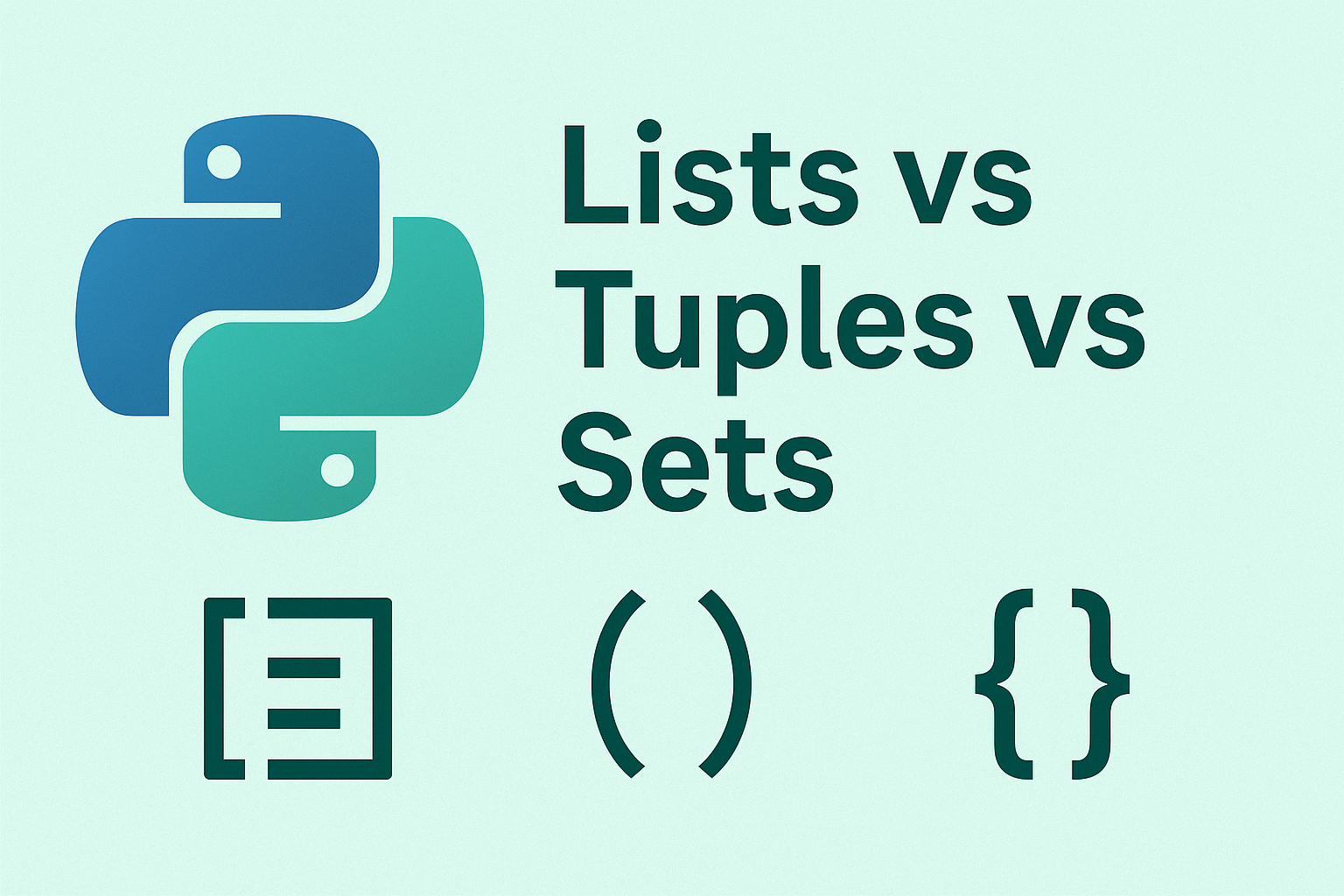In Python, we often reach for lists, tuples, and sets to store data. They look similar, but the choice affects memory, lookup speed, immutability, and thread safety. This post focuses on how working developers should decide between them.
Lists — ordered and mutable
A list maintains order and can be updated at any time.
emails = ["john@x.com", "jane@x.com"]
emails.append("max@x.com")
for email in emails:
print(email)
Use lists when:
- You need to preserve order.
- You plan to modify data (append, remove, sort).
- You do not need the object to be a dictionary key or a set element.
Engineering note: lists are fast for appends but not thread-safe for concurrent writes.
Tuples — fixed and hashable
Tuples are like lists, but immutable. This makes them good for fixed structures and for use as hash keys.
record = ("John", "Engineer", 42)
print(hash(record)) # tuple is hashable
Common in caching or API code:
user_id = 42
cache_key = (user_id, "GET:/api/orders")
if cache_key in cache:
return cache[cache_key]
Use tuples when:
- You want to protect data from modification.
- You need a hashable object (dictionary or set keys).
- You want lightweight records that are safe to share across threads.
Sets — unordered and unique
Sets store unique elements without a defined order. They are optimized for membership checks and deduplication.
seen_users = {"john", "mary", "max"}
if "john" in seen_users:
print("already processed")
ip_logs = ["1.1.1.1", "2.2.2.2", "1.1.1.1"]
unique_ips = set(ip_logs) # removes duplicates
Use sets when:
- You care about uniqueness, not order.
- You need frequent membership tests.
- You are filtering or deduplicating large data.
Engineering note: average set lookup is O(1), much faster than list membership.
Simple performance comparison
import timeit
setup = "nums = list(range(1_000_000)); lookup = 999_999"
print('List lookup:', timeit.timeit('lookup in nums', setup=setup, number=10))
print('Set lookup:', timeit.timeit('lookup in set(nums)', setup=setup, number=10))
Set lookups are typically orders of magnitude faster on large data.
Quick decision guide
| Use case | Recommended | Reason |
|---|---|---|
| Ordered dynamic data | List | Easy to modify, preserves order |
| Fixed-size or immutable data | Tuple | Hashable and safe to share |
| Unique values / membership checks | Set | Enforces uniqueness, fastest lookup |
| Hash key or cache key | Tuple | Must be immutable |
| Deduplicating large datasets | Set | Simplifies unique filtering |
Final thoughts
Choose lists for order and flexibility, tuples for safety and stable keys, and sets for uniqueness and speed. Each choice signals intent to future readers: this data will change, this data is fixed, or this data must be unique.
